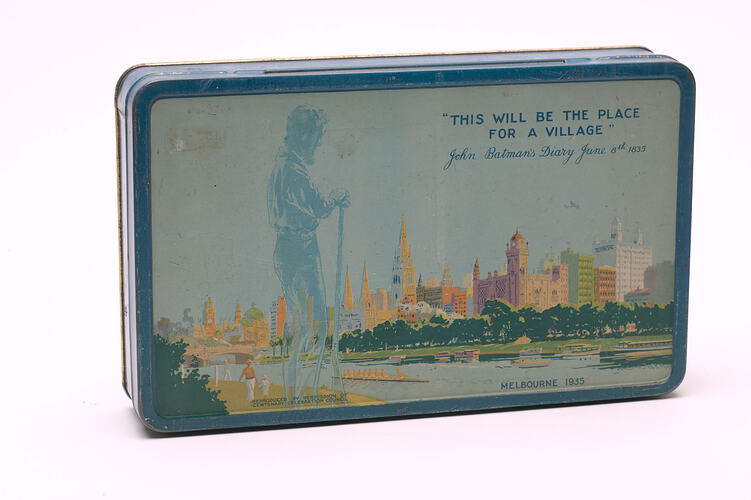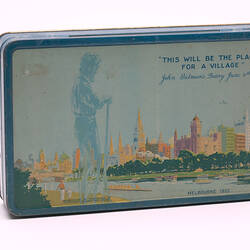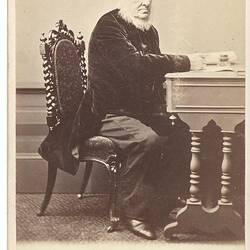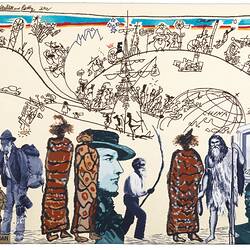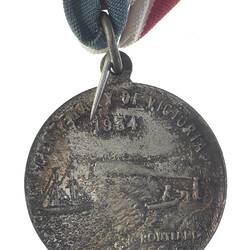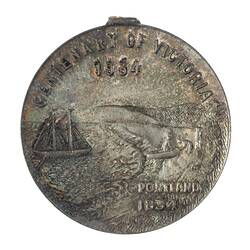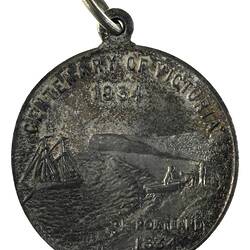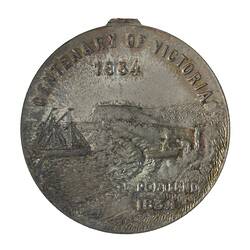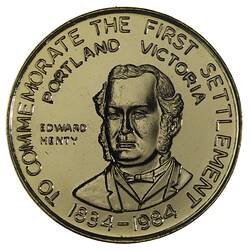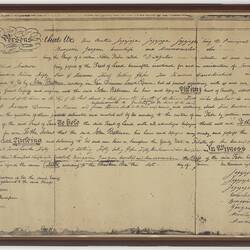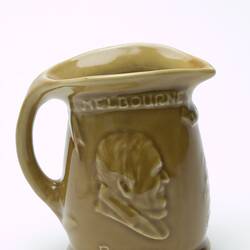Aboriginal people of the Kulin nation gathered every year near the Yarra River for ceremonies, celebrations and trade. These were important social gatherings where political and family alliances were reinforced and grievances addressed.
With the arrival of Europeans, Melbourne soon became a new type of meeting place, dominated by the settlers and their interests. The settlers were attracted by the rich pastures to the west and north of Port Philip, many of the same sites that Aboriginal settlers had long inhabited. This included meeting places such as the future site of the Melbourne Cricket Ground, the hill where Government House now stands, and along the Yarra River at Burnley and Clifton Hill. Evidence of these sites was recorded by the settlers, with the assistance of Aboriginal people such as Billibellary.
Competing with white settlers for land and food caused hardship. Aboriginal people were also struck by deadly introduced diseases such as dysentery, influenza and tuberculosis. Assistant Protector William Thomas reported that within 20 years of Melbourne's settlement the number of Aboriginal people of the region had decreased to about 28.
The charge to settle Port Philip was led by businessmen from Van Diemen's Land (Tasmania), including John Batman, his partner John Wedge and rival John Pascoe Fawkner. They arrived in 1835 with limited supplies but unlimited enthusiasm for making money.
In 1834 Batman was instrumental in the formation of the Port Phillip Association with John Helder Wedge, seeing an opportunity for expanding their interests into a new region.
In May 1835 the syndicate explored Port Phillip Bay, looking for suitable sites for a settlement. Batman claimed to have signed a 'treaty' or deed with Aboriginal leaders, providing them with 20 blankets, 30 tomahawks, 100 knives, 50 pairs of scissors, 30 looking glasses, 200 handkerchiefs, 100 pounds of flour and six shirts, in exchange for a tract of country at Port Philip containing about 500,000 acres. Batman then returned to Van Diemen's Land and began plans to mount a large expedition to establish a settlement on the Yarra River.
However just three months later, another syndicate of settlers, financed by John Pascoe Fawkner, entered the Yarra River aboard the Enterprize, establishing the first permanent settlement on the banks of the Yarra. When Batman and his party reached the Yarra on 2 September they were dismayed and angry to find Fawkner's people already in possession. The two groups decided that there was plenty of land for everybody and not dispute who was there first.
Aboriginal people were forced off their land and deprived of their rights to access resources and food. Although the Kulin adapted to the situation by bartering goods and artefacts, the impact of the settlement was devastating.
The Government of New South Wales, then also governing Victoria, thought that the new settlement should not exist. In August 1835 all settlers were pronounced trespassers and Batman's deed with the Aboriginal leaders declared void. Despite this, news of the settlement at Port Phillip had already spread, and more boats were crossing Bass Straight from Van Diemen's Land and dropping anchor in the Yarra River. In the chaos of the fast growing settlement, ex-convicts rubbed shoulders with free settlers and "young gentlemen", all eager for opportunity and adventure. Within twelve months 177 settlers and more than 26,000 sheep had arrived.
The New South Wales Government accepted the inevitable and hastened to establish control. They began to distribute land around Melbourne to settlers on the assumption that it belonged to the Crown. In September 1836, it sent Captain William Lonsdale to take charge of law and order. Soon the tools of authority were in place, including a court house and a police lock-up.
In March 1837, Melbourne was proclaimed a town by Governor Sir Richard Bourke during his brief visits from Sydney. Burke named the new town after Lord Melbourne, the British Prime Minister.
References:
Melbourne Story exhibition labels
More Information
-
Keywords
Cultures and histories : Melbourne and Victoria, Melbourne, Melbourne Landmarks, pioneer settlements
-
Localities
-
Authors
Ms Deborah Tout-Smith, Eloise Coccoli, Dr Michelle Stevenson
-
Article types
